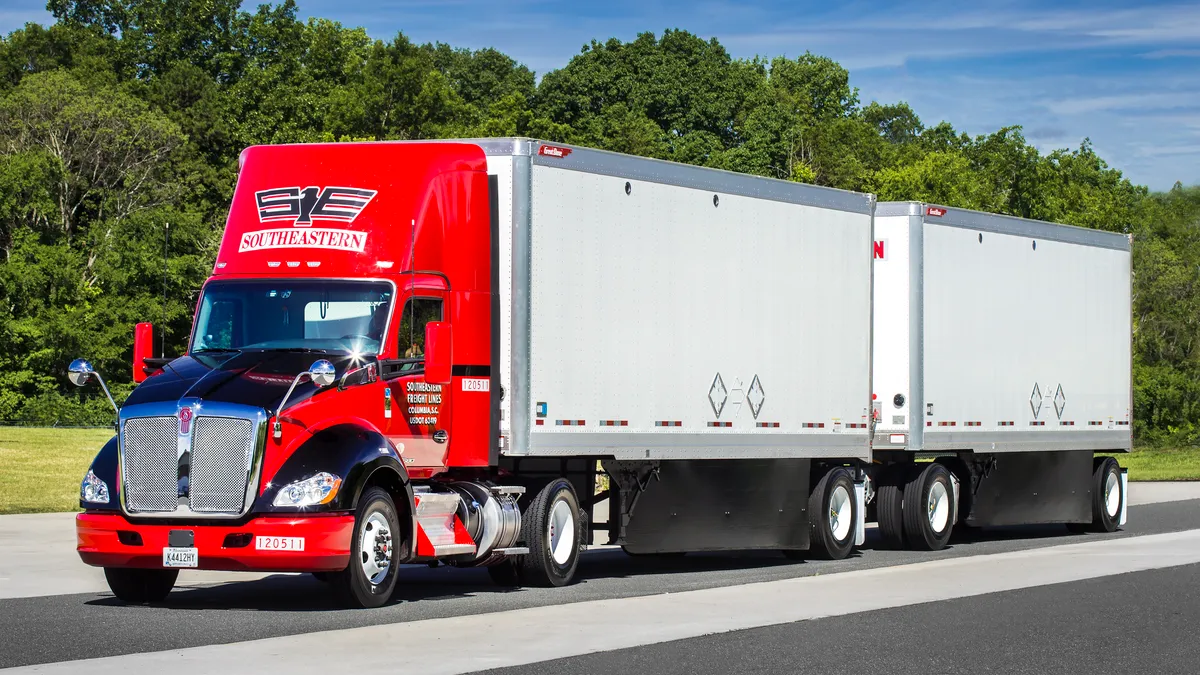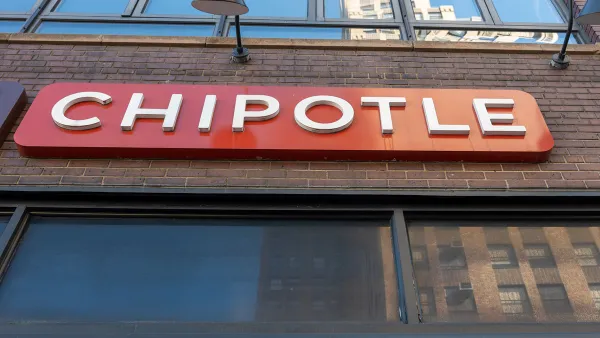Dive Brief:
- The National Restaurant Association sent a letter to the White House on Monday asking the Joe Biden administration to seek solutions to supply chain and inflation challenge to aid the restaurant industry's recovery from the COVID-19 pandemic.
- The association urged for the creation of a White House Supply Chain Disruptions Task Force, for the federal government to open the Ports of Los Angeles and Long Beach to 24-hour/seven-day-a-week operations and to organize meetings with key stakeholders to develop other solutions. Some of these requests reflect the Biden administration's recently announced commitments to rectify supply chain issues, including expanded operations in the Port of Los Angeles.
- The NRA reports 95% of restaurants have experienced "significant" supply delays or shortages of key food items in recent months, and 75% have had to make menu changes because of supply chain issues.
Dive Insight:
The NRA argues that a major impetus for current supply chain challenges is a widespread worker shortage, ranging from an insufficient fleet of truck drivers to too few agriculture workers. Much of the association's requests center on rebuilding this workforce so goods can flow more quickly through the supply chain — which could help struggling restaurants that are bracing for conditions to worsen as the busy holiday season approaches.
Those proposed solutions include comprehensive immigration reform, which would create a clear path to legalization for the 11 million undocumented people working in the U.S. Approximately 10% of all restaurant employees are undocumented workers, and that number jumps to as high as 40% in some urban markets. The association also called for the creation of a viable visa worker program that allows legal foreign-born workers to "come into the U.S. under a controlled process to work year-round in the hospitality sector."
The association also urged the Biden administration to expand employment opportunities for former incarcerated persons. A few such programs already exist, and could provide a roadmap for a national solution.
To address a shortage of 80,000 truck drivers, the NRA recommended Congress pass a program that would allow people between the ages of 18 and 21 to train as truckers and begin driving interstate commerce once they have passed training and safety requirements. Currently, long-haul truckers must be 21 or older. Finally, the association has asked the Biden administration to remove tariffs on food and beverage products and equipment as the industry relies "on global, interconnected supply chains."
If the federal government doesn't make moves to mitigate supply chain disruption, it could mean even higher food prices for restaurants. Food shortages have driven beef prices up nearly 58% year over year, while fats and oils prices are up 50% and egg prices are up 39%, according to the NRA. About 47% of restaurant operators have experienced poultry shortages, and 45% have experienced beef shortages.
While the association emphasized the impact of supply chain disruption on full-service restaurants, QSRs are also feeling the squeeze. During McDonald's Q3 call on Oct. 27, CEO Chris Kempczinski said supply chain issues have been a bigger challenge recently than they have been historically.
Wholesale food prices have experienced the highest 12-month increase since 1980, while menu prices on average are up 4.7%, according to NRA data. Lifting menu prices hasn't come close to offsetting commodities costs, however, and 85% of operators report smaller margins than pre-pandemic.












